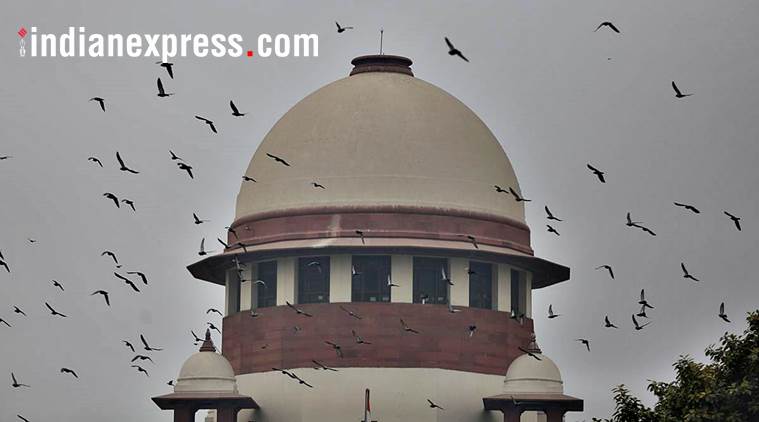 The Supreme Court. (Express Photo by Tashi Tobgyal/File)
The Supreme Court. (Express Photo by Tashi Tobgyal/File)
THE SUPREME Court on Monday struck down a provision in the Uttar Pradesh Ministers (Salaries, Allowances and Miscellaneous Provisions) Act, 1981, which allows former chief ministers to retain their official accommodation even after their term ends.
A two-judge bench of Justices Ranjan Gogoi and R Banumathi said chief ministers are “at par with the common citizen” once they demit office, and allowing them to retain their bungalows at public expense would amount to creating “a separate class of citizens”. The ruling is expected to affect other states like Assam and Bihar, which have similar provisions for former chief ministers.
The bench struck down clause 3, added by way of an amendment to Section 4 of the 1981 Act, saying it is “ultra vires of the Constitution of India as it transgresses the equality clause under Article 14” and is “arbitrary” and “discriminatory”. “The chief minister, once he/ she demits the office, is at par with the common citizen, though by virtue of the office held, he/ she may be entitled to security and other protocols. But allotment of government bungalow, to be occupied during his/ her lifetime, would not be guided by the constitutional principle of equality,” said the court.
The court said that “undoubtedly”, the section “would have the effect of creating a separate class of citizens for conferment of benefits by way of distribution of public property on the basis of the previous public office held by them”. The court was hearing a petition filed by NGO Lok Prahari. “Natural resources, public lands and public goods like government bungalows/ official residence are public property that belong to the people of the country,” said the court, adding that “the ‘Doctrine of Equality’ which emerges from the concepts of justice, fairness must guide the state in the distribution/allocation of the same”.
“Once persons demit the public office earlier held by them, there is nothing to distinguish them from the common man. The public office held by them becomes a matter of history and, therefore, cannot form the basis of a reasonable classification to categorise previous holders of public office as a special category of persons entitled to the benefit of special privileges… It is a legislative exercise based on irrelevant and legally unacceptable considerations, unsupported by any constitutional sanctity,” it said.
The UP government had, in 1997, introduced a set of rules to provide government accommodation to former chief ministers. The NGO, Lok Prahari, challenged this in the Supreme Court, which struck down the rules in August 2016. The state subsequently amended Section 4 of the 1981 Act, by which former chief ministers are entitled to government accommodation for their lifetime. Opposing the writ petition filed under Article 32 of the Constitution, the state contended that the writ jurisdiction of the court could be invoked only where there is a direct infringement of the fundamental rights of the petitioner.
But the court turned this down, saying that the provision can also be invoked to ensure the rights of a class, and not just individual rights. “While it is true that Article 32 of the Constitution is to be invoked for enforcement of the fundamental rights of a citizen or a non-citizen, as may be, and there must be a violation or infringement thereof, we have moved away from the theory of infringement of the fundamental rights of an individual citizen or non-citizen to one of infringement of rights of a class”. The bench said this “transformation is the foundation of “Public Interest Litigation” or “class action” suits.
Though the matter referred to the UP Act, the court said it had, during the hearing, thought it appropriate “to inform” other states and union territories who may have similar provisions. Only Odisha, Assam, Tamil Nadu and Bihar responded. Though Tamil Nadu and Odisha had no such provisions, Bihar and Assam had such provisions by way of executive instructions.
The Centre also informed the court that it provides accommodation to former Presidents, Vice-Presidents and Prime Ministers. Additional Solicitor General Aman Lekhi pointed out that the issue came up for consideration of the court in the 1997 case of Shiv Sagar Tiwari vs. Union of India and others and the court had approved the same.